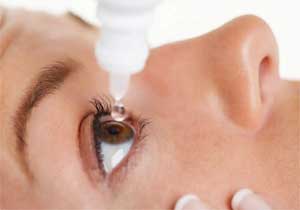- Home
- Editorial
- News
- Practice Guidelines
- Anesthesiology Guidelines
- Cancer Guidelines
- Cardiac Sciences Guidelines
- Critical Care Guidelines
- Dentistry Guidelines
- Dermatology Guidelines
- Diabetes and Endo Guidelines
- Diagnostics Guidelines
- ENT Guidelines
- Featured Practice Guidelines
- Gastroenterology Guidelines
- Geriatrics Guidelines
- Medicine Guidelines
- Nephrology Guidelines
- Neurosciences Guidelines
- Obs and Gynae Guidelines
- Ophthalmology Guidelines
- Orthopaedics Guidelines
- Paediatrics Guidelines
- Psychiatry Guidelines
- Pulmonology Guidelines
- Radiology Guidelines
- Surgery Guidelines
- Urology Guidelines
New Eye drops from human antibodies show promise for dry eye treatment

USA: A new eye drop treatment made from pooled human antibodies could improve the condition of people with dry eye disease (DED), report researchers at the University of Illinois at Chicago.
The researchers are the first to identify the presence of a specific type of antibody, called anti-citrullinated protein autoantibodies, or ACPAs, in human tear fluid. The study, published in The Ocular Surface journal found that patients with dry eye disease who were given the eye drop (that targets ACPAs) experienced reduced signs and symptoms of DED. The new eye drops treat dry eye disease by knocking the immune system out of this cycle, at least partially.
According to Mayo Clinic, dry eye is a common condition that occurs when your tears aren't able to provide adequate lubrication for your eyes. Tears can be inadequate for many reasons. For example, dry eyes may occur if you don't produce enough tears or if you produce poor-quality tears.
Sandeep Jain, the University of Illinois at Chicago, Chicago, IL, USA, and colleagues investigated the role of ACPAs in the pathology of dry eye disease and the therapeutic potential of pooled human immune globulin-eye drops in these patients.
"The burden of autoimmune dry eye is much greater than just having an occasional feeling of dryness," said Dr. Jain. "It can severely compromise the quality of life to the point of disability and can compromise a person's vision."
27 participants with severe DED participated in the trial. They were randomized into to group; one group was given eye drops made from pooled antibodies and instructed to administer one drop to each eye twice daily for eight weeks and the control group was given the same instructions with eye drops made without antibodies.
Symptoms of the patients were evaluated through questionnaires. The extent of corneal damage and the amount of pro-inflammatory biomarkers on the surface of the eye before and for the duration of the study was also measured.
The researchers evaluated patients' symptoms through questionnaires and measured the extent of corneal damage and the amount of pro-inflammatory biomarkers on the surface of the eye before and for the duration of the study.
Key findings of the study include:
- People using antibody-based eye drops had a statistically significant and clinically meaningful reduction in corneal damage at eight weeks compared with the control group.
- Questionnaire scores related to symptoms also reflected significant improvement among patients using the new antibody-based eye drops when compared with the eye drops without antibodies.
- In the test group, the amount of pro-inflammatory biomarkers -- or dry areas -- also was reduced on the surface of the eye.
- Participants in the trial who used the drops with pooled antibodies reported less eye discomfort and their corneas were healthier.
In the new study, the researchers identified ACPAs as another cause of eye inflammation that also contributes to the development of these webs, which Jain calls "a vicious cycle of inflammation."
"There are currently only two approved drugs to treat dry eye, and they don't work for everyone, especially those with severe disease, so having a new drug that can treat the disease by targeting a different mechanism, in this case, autoimmunity, is very important," Jain said.
"The data from this early clinical trial suggests that eye drops containing pooled antibodies may be safe and effective for treating dry eye disease, and we look forward to conducting larger randomized trials to definitively prove its efficacy," said Dr. Jain.
More Information: "Pathological consequences of anti-citrullinated protein antibodies in tear fluid and therapeutic potential of pooled human immune globulin-eye drops in dry eye disease" published in The Ocular Surface journal.
DOI: https://doi.org/10.1016/j.jtos.2019.10.004
Journal Information: The Ocular Surface
Provided by: University of Illinois at Chicago

Disclaimer: This site is primarily intended for healthcare professionals. Any content/information on this website does not replace the advice of medical and/or health professionals and should not be construed as medical/diagnostic advice/endorsement or prescription. Use of this site is subject to our terms of use, privacy policy, advertisement policy. © 2020 Minerva Medical Treatment Pvt Ltd